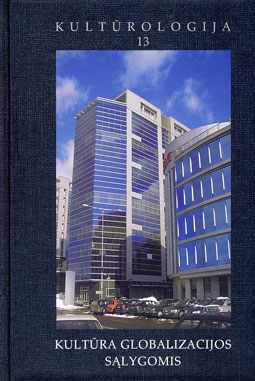Vakarai ir islamas: konfrontacija ar tarpusavio supratimas?
The West and Islam: Confrontation or Mutual Understanding?
Author(s): Stanislovas JuknevičiusSubject(s): Cultural Essay, Political Essay, Societal Essay
Published by: Lietuvos kultūros tyrimų
Keywords: the West; Islam; Christianity; religion; morality; ideology; confrontation; mutual understanding
Summary/Abstract: The principal aim of this article is to reveal those religious features (not only and not so much of Islam), which in one way or another have affected and can affect the relations between Islam and the West in future. First, some peculiarities of the development of Christianity and Islam crucial for the formation of these religions are analyzed; second, one of the main manifestations of the crisis of Western morality - the weakening of the moral functions - is dealt with; third, the different attitudes of religious and liberal ideologies to the personality, society and being are examined; and finally some variants of the development of the relations between the West and Islam including Lithuania's situation in the context of the aforementioned problems are discussed. The conflict between the West and Islam is primarily a conflict between the traditional religious and modern secularized cultures. According to the adherents of secularized culture Islamic society was backward and intolerant, while in the opinion of the representatives of the religious viewpoint Western culture was corrupted. Consumerism referred to by Francis Fukuyama is one but not the principal manifestation of this degradation. The main criticism levelled at the West by the supporters of the traditional cultures throughout the world is secularization and the accompanying moral crisis. It is noteworthy that such views are adhered to not only by Islamic fundamentalists but also by all religious people, including Christians. The Functions of Morality. The concept of morality depends primarily on the concept of man. Man may be viewed as a purely biological being - a featherless biped, they said in ancient Greece. Then, the main concerns of man are eating and reproducing, and the main moral tenet - the pursuit of pleasure. In this way, he does not differ from an animal: not accidentally, again in ancient Greece, hedonists were compared to pigs that overeat and wallow in mud. We can also view man as a social being - in Aristotelian terms, a political animal. In this case, the main goal of man is happiness.
Journal: Kultūrologija
- Issue Year: 2006
- Issue No: 13
- Page Range: 116-153
- Page Count: 37
- Language: Lithuanian

